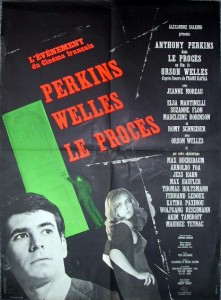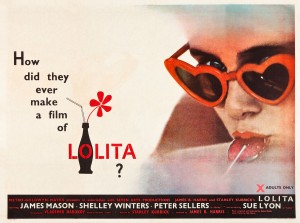 After Saturday’s twofer of French New Wave masterpieces, the Brattle presents another can’t miss double-header today. This time, it’s focused upon arguably the two finest filmmakers our country has ever produced – Orson Welles, and Stanley Kubrick.
After Saturday’s twofer of French New Wave masterpieces, the Brattle presents another can’t miss double-header today. This time, it’s focused upon arguably the two finest filmmakers our country has ever produced – Orson Welles, and Stanley Kubrick.
In my mind, the two have always shared a strange intrinsic connection as the seminal filmmakers of their respective generations. The parallels are undeniable: both worked, for the latter parts of their life, divorced from the Hollywood system (though, in Kubrick’s case, not from Hollywood money.) Though for entirely different reasons, both released only 12-feature length films over decades-long careers. Both were highly alienating figures whose best works, uniformly, never got their due until years following their release. Both indulged in a great number of literary adaptations, and both have such films celebrating their 50th birthday: Welles’ THE TRIAL, and Kubrick’s LOLITA.
Released in 1962, the films saw the two celebrated auteurs on opposite sides of their career paths. Welles clearly saw a peer in Kubrick, saying in an interview that year that he saw talent in him that “great” directors like Nicholas Ray, John Huston, and Robert Aldrich lacked, “perhaps… because his temperament comes closer to mine.” Kubrick , at that time, was a hotshot 33-year old coming off a big critical success in his anti-war manifesto PATHS OF GLORY and a massive financial success in his sword-and-sandals crowd-pleaser SPARTACUS. He was also on the verge of defining the artistic voice for which he would be known for the rest of his career.
 His LOLITA, admittedly, is hampered by the Production Code; it struggles to translate the singular exuberance of Nabokov’s prose to the screen. Yet the playful use of Peter Sellers anticipates the hilarity of his next film, DR. STRANGELOVE (and the subtle comedy in everything that came after it) and the meticulous set design and camera movements anticipate the rigidly centered style that would emerge with 2001. It may not be essential cinema, but it’s essential for anyone interested in Stanley Kubrick.
His LOLITA, admittedly, is hampered by the Production Code; it struggles to translate the singular exuberance of Nabokov’s prose to the screen. Yet the playful use of Peter Sellers anticipates the hilarity of his next film, DR. STRANGELOVE (and the subtle comedy in everything that came after it) and the meticulous set design and camera movements anticipate the rigidly centered style that would emerge with 2001. It may not be essential cinema, but it’s essential for anyone interested in Stanley Kubrick.
Orson, on the other hand, was entering another leave from the country in which he made his name: after the unexplainably disappointing treatment given to his final Hollywood film TOUCH OF EVIL (that’s a whole other article) he once again returned to Europe in search of alternative financing for what would become his final narrative films. Unlike Kubrick, the elder Welles’ aesthetics were at their peak already: he shot THE TRIAL on a measly budget with low-rent locations, and he comes out with a masterpiece of claustrophobic mise-en-scene. While the casting of Anthony Perkins as Kafka’s fatally befuddled “hero” Josef K. is an integral part of the equation, it is Welles’ direction, his disorienting compositions, and his surreal camera movements that elevate THE TRIAL from a low-rent adaptation into a haunting experience simultaneously hallucinogenic and terrifying.
While their works never got their due from the critics of the day, the visual exuberance and incomparably distinct artistic voices of both Welles and Kubrick would influence the most notable American filmmakers that followed in their wake, past and present: everyone from Martin Scorsese and Brian De Palma to Wes Anderson and Paul Thomas Anderson. They remain, to this day, arguably the two most iconic artists to ever step behind the camera in this country. Don’t miss this incredibly rare chance to see two of their least-cited films on 35mm, on a beautiful screen, with a one-of-a-kind crowd. You may not get another one. – Jake Mulligan
THE TRIAL shows Monday, 5/28 at 1:30 and 7:00, with LOLITA at 4:00 and 9:30. The Brattle Theatre, 40 Brattle Street, Cambridge MA, 02138


